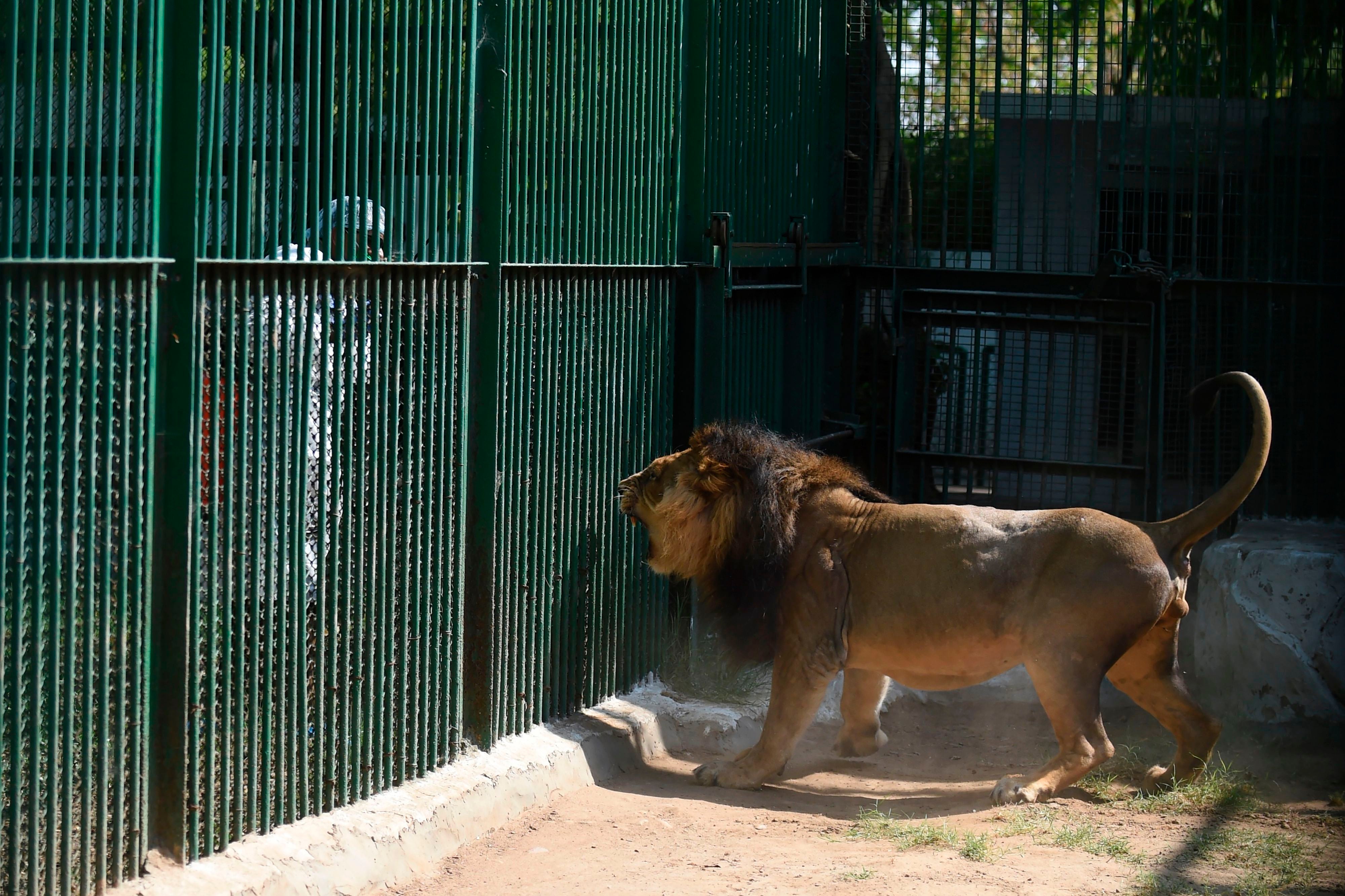Eight Asiatic lions at Indian zoo test positive for Covid
Animals showing symptoms including dry coughs, loss of appetite and nasal discharge

Eight Asiatic lions have tested positive for Covid-19 at a zoo in Hyderabad, India, in the first such case reported in the country.
Following analysis of the genomes of the coronavirus samples from these lions, the CSIR-Centre for Cellular and Molecular Biology (CSIR-CCMB) in Hyderabad, which houses one of India’s four designated Covid-19 testing centres for captive animals, said the felines were not infected by any variant of concern.
Veterinarians at the Nehru Zoological Park reportedly noticed the lions showing Covid-like symptoms in the last week of April.
Of the 12 lions at the zoo, eight were found coughing with other symptoms including nasal discharge and loss of appetite, but the felines are reportedly “doing well” currently.
“The lions have been now isolated at the zoo from other animals, and are receiving due care and necessary treatment. They are also responding well to the treatment and recovering,” said Dr S Kukrety, Director of Zoos.
India’s Ministry of Environment, Forest and Climate Change later noted that the eight infected lions “have responded well to the treatment and are recovering”, adding that they are “behaving normally and eating well.”
It said the zoo has been closed to visitors to prevent animals from human contact with measures also in place for zoo staff.
On Saturday, the state’s Chief Wildlife Warden had announced the park would be closed for visitors from 2 May until further notice.
“In view of the rapid spread of SARS Cov-2 in the country, the Ministry of Environment Forests and Climate Change, New Delhi has issued an advisory to close all Zoological Parks, National Parks, Tiger Reserves and Wildlife Sanctuaries for visitors till further orders to control the spread of the Covid-19 pandemic,” the announcement said.
Wildlife biologist and conservation scientist Ravi Chellam said while there are chances of transmission of the virus in captive environments such as in zoos, the possibility of lions getting infected in the wild is negligible.
“In New York, last year, tigers and lions were reported to be positive for infection, and lab studies have also shown that cats can get the virus. Tigers, lions and other species of cats differ at the species level, but it is very likely that they are all susceptible to the coronavirus,” Dr Chellam, whose doctoral research was on the ecology of Asiatic lions and who has been involved with research and conservation of the felines since 1985, told The Independent.
“The coronavirus transmission is airborne so unless humans are in close proximity to wild animals in closed indoor settings, lesser than six feet, and they are unmasked, the chances for human to animal transmission is negligible. So the chances of humans infecting captive animals if people are following the due safety protocols, is very very low,” he added.
Though lions are also found significantly outside national parks in India’s Gir forest, interacting with humans and their lifestock, “more or less on a regular basis,” the wildlife biologist said the chances of them contracting the virus in a freeranging condition from humans is “close to zero.”
Karthikeyan Vasudevan, Scientist-in-charge at the Laboratory for Conservation of Endangered Species at CSIR-CCMB, said the need of the hour is to strictly follow the safety regulations in Indian zoos to avoid transmitting the infection to the animals.
“We have to carefully document the different symptoms that coronavirus infection causes in animals as well as develop non-invasive ways to procure samples from animals. Getting swab samples from animals is very difficult,” Dr Vasudevan noted in a statement.
Join our commenting forum
Join thought-provoking conversations, follow other Independent readers and see their replies
Comments
Bookmark popover
Removed from bookmarks